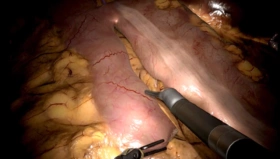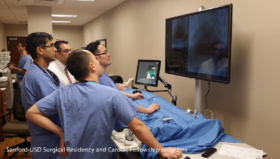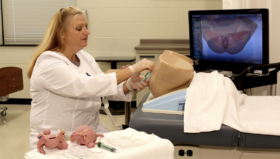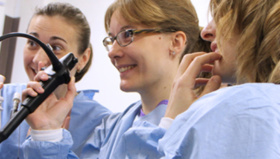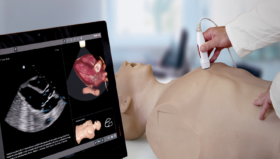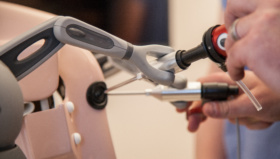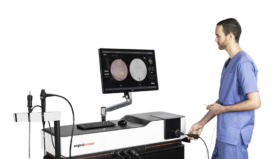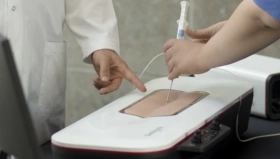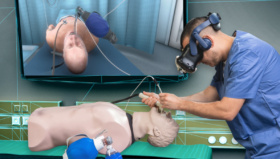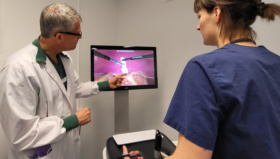A new study, Simulation‑based VATS resection of the five lung lobes: a technical skills test, was published recently by the Copenhagen Academy for Medical Education and Simulation (CAMES). It is the first paper to explore the newly developed virtual reality (VR) module for the Video-Assisted Thoracoscopic Surgery (VATS) procedure.

The VATS Lobectomy module, developed for the LapSim simulator in cooperation with VATS surgical experts, is an advanced simulated procedure that helps train surgeons in the key steps in the resection of each five lung lobes, commonly used in the treatment for lung cancer.
Objective
The objective of the study was to investigate validity evidence for the LapSim simulator for the VATS procedure. It is important that trainees reach a predefined level of proficiency before performing a real VATS procedure, as complications, such as injury vessels with resulting blood loss, can have fatal consequences for patients.
Results And Conclusions
41 surgeons with varying experience took part in the study, resulting in a total of 123 lobectomies. The results showed that trainee surgeons using the LapSim simulator developed basic competence skills at the end of their VR simulation training. There was significant difference between experienced surgeons and novices with shorter procedure times, a decrease in blood loss, vessel injury and instrument movements.
 Tamim Haidari, one of the key researchers for the study commented, “To our knowledge this is first VR simulator for VATS lobectomy with haptic feedback allowing trainees to perform lobectomy of all five lobes of the lung. Our study makes it possible to implement mastery learning training programs where novices practice on the simulator until they are able to pass the test.”
Tamim Haidari, one of the key researchers for the study commented, “To our knowledge this is first VR simulator for VATS lobectomy with haptic feedback allowing trainees to perform lobectomy of all five lobes of the lung. Our study makes it possible to implement mastery learning training programs where novices practice on the simulator until they are able to pass the test.”
The study went on to conclude that “One the benefits of VR simulators is the possibility for automatically generated and standardized metrics, for evaluating performance. The metrics can be used for immediate feedback without the need for a rater to assess their performance.”
You can read the abstract here.
Want to know more about VR Simulation?
